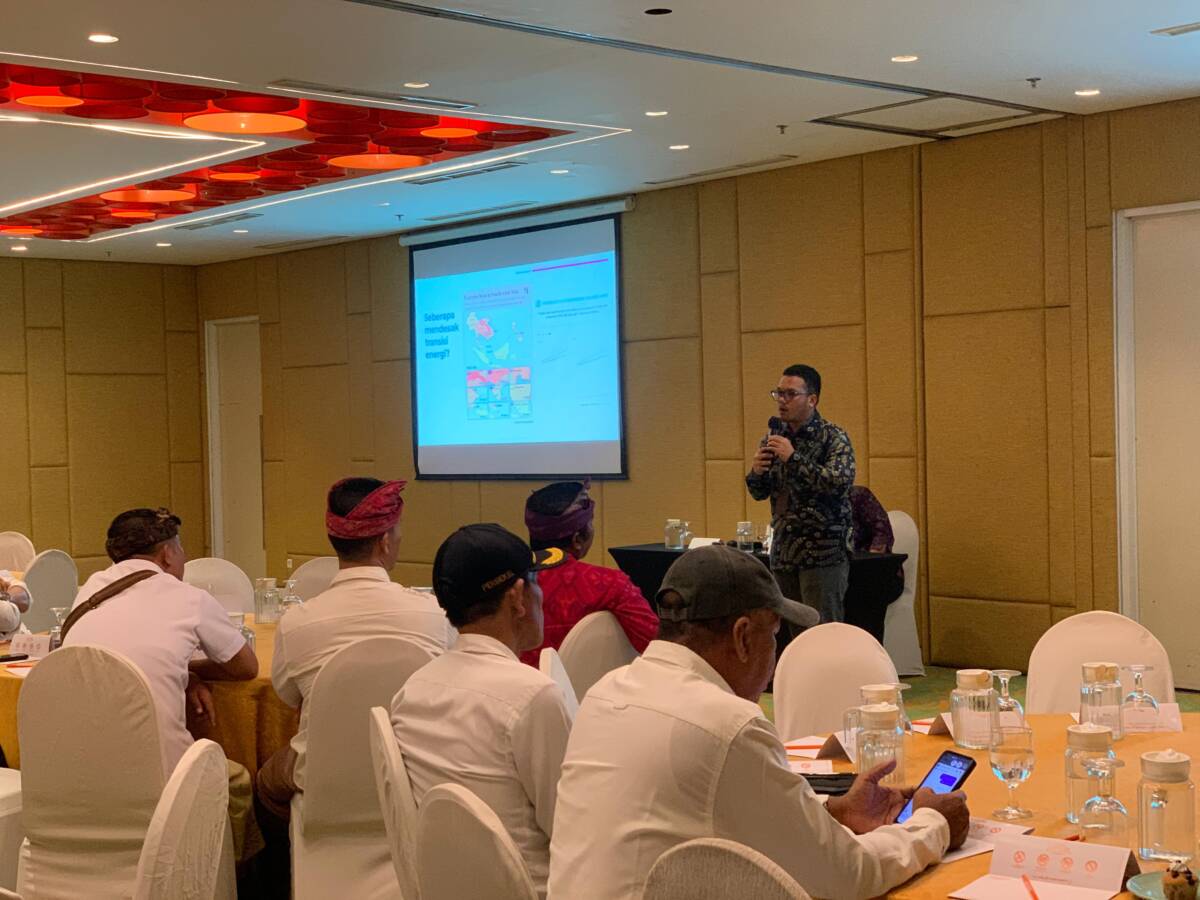Denpasar, May 29, 2024 – According to the data from the Central Bureau of Statistics (BPS), Bali Province is recorded to have 1495 customary villages and 637 administrative villages. Traditional wealth and culture are still deeply ingrained in Balinese society. As a manifestation of initiatives towards achieving Net Zero Emission (NZE) 2045 in Bali Province, the Institute for Essential Services Reform (IESR) together with the Bali Provincial Manpower and Mineral Resources Office (Disnaker ESDM), Bali Provincial Office of Indigenous Community Development, Office of Community Empowerment, Village, Population, and Civil Registration of Bali Province, along with the Bali Provincial Village Consultative Assembly (MDA) collaborated with the Community-Based Renewable Energy Center of Excellence (CORE) from Udayana University to organize a Socialization on the Utilization of Renewable Energy for Villages in Bali held on May 29, 2024, in Denpasar City.
The socialization on the utilization of renewable energy for villages in Bali began with opening remarks by the secretary of the Bali Provincial Office of Indigenous Community Development, Mrs. A.A Eka Saputri, representing the Head of the Bali Provincial Office of Indigenous Community Development. The event was attended by 20 village heads and 20 elders from 8 districts in Bali.
The socialization commenced with a presentation by Professor Ida Ayu Giriantari, the chairperson of CORE Udayana, emphasizing the importance of maximizing the potential of renewable energy at the village level in Bali through education related to Bali Net Zero Emission 2045 and its connection with the concept of Nangun Sat Kerthi Loka in Tri Hita Karana in Bali, which is a concept of balance between humans, the environment, and the Deity that still serves as the foundation for Balinese society.
“With the cultural richness and the concept of Tri Hita Karana, Bali can make the implementation of renewable energy as manifestation of alignment between human needs and nature,” said Professor Ida Ayu Giriantari in her presentation at Hotel Harris Denpasar.
Alvin Putra Sisdwinugraha, Power System and Renewable Energy Analyst at IESR, pointed out that global tourism is now becoming aware of the concept of sustainable tourism, and Bali is one of the leading destinations that, with all the potential held by its villages, can implement sustainable tourism as an innovation for villages. “This implementation requires cooperation from various parties, especially the progressive support from the Bali Provincial Government for the implementation of this program at the village level in Bali. Furthermore, various regulations aimed at decarbonization have also been implemented in Bali.
“In the low-carbon development plan for Bali, there is a requirement for a roadmap to decarbonize the electricity system in Bali. This is in line with the principle of Tri Hita Karana, which supports Bali’s progress towards low emissions. To achieve this, IESR has been actively making several strategic efforts, such as identifying the initial potential renewable source for several customary villages in Bali. In the future, IESR is committed to actively accompanying customary villages and administrative villages in Bali in the transition to renewable energy, starting from determining pilot projects for Energy Independent Villages in collaboration with the Bali Provincial Manpower and Mineral Resources Office (Disnaker ESDM), Bali Provincial Office of Indigenous Community Development (DPMA), Office of Community Empowerment, Village, Population, and Civil Registration of Bali Province, and Bali Provincial Village Consultative Assembly (MDA), along with the leaders of customary villages and administrative villages.

